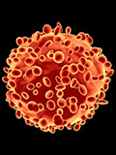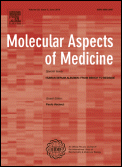
EXPERIMENTAL AND MOLECULAR PATHOLOGY
Scope & Guideline
Pioneering research for a healthier tomorrow.
Introduction
Aims and Scopes
- Molecular Mechanisms of Disease:
Research exploring the molecular basis of various diseases, including cancer, autoimmune disorders, and cardiovascular diseases, often utilizing advanced molecular techniques. - Pathological Processes and Biomarkers:
Studies focused on identifying and validating biomarkers for disease progression, diagnosis, and prognosis, employing both in vitro and in vivo methodologies. - Therapeutic Innovations:
Investigations into novel therapeutic approaches, including drug development, gene therapy, and the application of nanomedicine in treating various diseases. - Immunopathology:
Research into the immune responses associated with diseases, including the role of immune cells and pathways in cancer and inflammatory conditions. - Experimental Models in Pathology:
Utilization of various experimental models, including animal models and cell cultures, to study disease mechanisms and test therapeutic interventions.
Trending and Emerging
- Cancer Genomics and Personalized Medicine:
An increasing number of studies are focusing on the genomic characterization of tumors, aiming to develop personalized treatment strategies based on individual genetic profiles. - Role of Non-Coding RNAs in Cancer:
Research on the functions and mechanisms of non-coding RNAs, such as lncRNAs and miRNAs, is gaining traction, particularly in relation to cancer biology and therapeutics. - Immunotherapy and Cancer Immunology:
There is a growing emphasis on the role of the immune system in cancer treatment, with studies investigating novel immunotherapeutic approaches and the underlying immunological mechanisms. - Microbiome and Disease Correlation:
Emerging research is exploring the relationship between the microbiome and various diseases, highlighting its influence on disease progression and treatment responses. - Technological Advancements in Molecular Pathology:
Innovations in high-throughput sequencing, imaging techniques, and bioinformatics are increasingly featured in studies, emphasizing their role in advancing molecular pathology research.
Declining or Waning
- Traditional Histopathology Techniques:
The reliance on conventional histological methods has decreased as molecular techniques become more prevalent, leading to fewer studies focused solely on traditional histopathology. - Single Disease Focus Studies:
There has been a noticeable decline in studies that focus exclusively on a single disease without considering broader implications or comparative analyses across diseases. - Basic Science without Clinical Application:
Research that does not bridge basic science with clinical applications appears to be diminishing, reflecting a trend towards more translational research that directly impacts patient care. - Invasive Diagnostic Methods:
As non-invasive and less invasive techniques gain prominence, studies relying heavily on invasive methods for diagnosis and treatment assessment are becoming less common.
Similar Journals

PATHOLOGY RESEARCH AND PRACTICE
Exploring the Depths of Pathology and Forensic MedicinePATHOLOGY RESEARCH AND PRACTICE is a premier journal in the field of pathology and forensic medicine, published by Elsevier GmbH in Germany. With a rich publication history since 1978 and an impressive convergence period extending to 2024, this journal serves as a vital resource for researchers and professionals dedicated to advancing the understanding of pathological processes. It holds notable rankings, including Q3 in Cell Biology and Q2 in Pathology and Forensic Medicine for 2023, reflecting its significance in the academic community. The journal aims to publish innovative research findings, reviews, and case studies, facilitating a deeper understanding of disease mechanisms and improving diagnostic practices. Authors and readers alike benefit from its reputable platform, noted for its challenging and rigorous peer-review process. By fostering a collaborative environment and providing open access options, PATHOLOGY RESEARCH AND PRACTICE continues to contribute meaningfully to the discourse within its respective fields, thereby appealing to a diverse audience of researchers, professionals, and students.

EXPERIMENTAL ANIMALS
Delivering groundbreaking insights in experimental animal studies.EXPERIMENTAL ANIMALS is a leading journal that serves the vibrant fields of Animal Science, Veterinary Medicine, and Biochemistry, Genetics, and Molecular Biology, published by the prestigious INT PRESS EDITING CENTRE INC in Japan. Boasting an impressive track record since its inception in 1974, the journal has positioned itself as a crucial platform for researchers aiming to disseminate innovative findings in experimental animal research. With a commendable impact factor and categorized in the Q2 and Q3 quartiles by Scopus in various relevant fields for 2023, EXPERIMENTAL ANIMALS exemplifies excellence in its contributions to science. The journal offers a comprehensive range of articles spanning from animal welfare and experimental methodologies to genetic studies, ensuring a multidisciplinary approach that appeals to a diverse audience of researchers, professionals, and students. Access to its wealth of knowledge fosters significant advancements in research and practice, underlining the journal's commitment to enhancing understanding of animal models in scientific inquiry.

Annual Review of Pathology-Mechanisms of Disease
Transforming Knowledge into Pathological SolutionsAnnual Review of Pathology: Mechanisms of Disease is a premier scholarly journal published by ANNUAL REVIEWS that systematically reviews significant advancements in the field of pathology and the mechanisms underpinning various diseases. With an ISSN of 1553-4006 and an E-ISSN of 1553-4014, the journal has established its importance within the academic community, evidenced by its prestigious Q1 rankings in several categories including medicine, pathology, forensic medicine, and plant science for 2023. Notably, it ranks #1 out of 208 in the pathology and forensic medicine category, placing it in the 99th percentile according to Scopus metrics. Although not an open-access journal, it offers crucial insights to researchers, professionals, and students alike by providing a comprehensive understanding of pathophysiological concepts and emerging trends. The journal continues to be an essential resource for those dedicated to advancing research and practical applications in disease mechanisms.

CARDIOVASCULAR PATHOLOGY
Advancing insights in cardiovascular health.CARDIOVASCULAR PATHOLOGY, published by Elsevier Science Inc, is a distinguished journal dedicated to the dissemination of high-quality research in the fields of cardiology, pathology, and cardiovascular medicine. With an ISSN of 1054-8807 and an E-ISSN of 1879-1336, this journal has established itself as a vital resource for researchers, clinicians, and students alike. It is positioned in the Q2 quartile for both cardiology and pathology, indicating its significant impact and relevance in these disciplines. The journal offers a platform for innovative studies, reviews, and clinical insights, aiming to enhance our understanding of cardiovascular conditions and their pathological underpinnings. With an H-index that showcases its scholarly influence, CARDIOVASCULAR PATHOLOGY is committed to advancing the field through rigorous peer review and open dialogue among professionals. The journal is accessible through institutional subscriptions, making it an essential reference point for ongoing research through its convergence of knowledge from 1992 through 2024.

NEUROPATHOLOGY AND APPLIED NEUROBIOLOGY
Elevating the Discourse in Pathology and NeuroscienceNEUROPATHOLOGY AND APPLIED NEUROBIOLOGY is a premier journal dedicated to advancing the understanding of the intricate relationships between pathology and neurobiology. Published by Wiley since 1975, this journal has established itself as a crucial resource for researchers, clinicians, and students interested in the latest insights and developments in the fields of pathology, neurology, and neuroscience. With an impressive history of convergence extending to 2024, it boasts a Q1 ranking in multiple categories including Histology, Neurology, and Pathology, reflecting its high impact and reputation in the academic community. Additionally, it ranks 18th out of 208 in Pathology and Forensic Medicine with a remarkable 91st percentile, signifying its relevance and influence in medical research. While not open access, this journal provides valuable content that contributes significantly to the ongoing discourse in neurobiological advancements and is a vital reference for those engaged in this dynamic field.

Genes & Diseases
Shedding light on the genetic foundations of disease.Genes & Diseases, published by KEAI PUBLISHING LTD, is a premier open-access journal dedicated to advancing the fields of genetics, biochemistry, and molecular biology. Established in 2014 and headquartered in Beijing, China, this journal has quickly risen to prominence, securing a place in the prestigious Q1 quartile in Biochemistry and Genetics (clinical), as well as Q2 in Cell Biology and Q1 in Molecular Biology as of 2023. With a commitment to disseminating cutting-edge research, Genes & Diseases serves as a critical platform for researchers, professionals, and students alike, ensuring that high-quality scientific work is openly accessible to the global community. The journal's exceptional impact is underscored by its selective Scopus rankings, which reflect its influence and relevance in key scientific domains, making it an essential resource for those exploring the intersections of genetics and disease pathology.

BMC Molecular and Cell Biology
Empowering open access to vital biological research.BMC Molecular and Cell Biology is a forward-thinking open-access journal published by BMC, specializing in the vital fields of molecular biology and cell biology. Since its inception in 2019, the journal has carved a niche for itself, ranking in the Q3 quartile in both Cell Biology and Molecular Biology categories as of 2023. With an ISSN of N/A and an E-ISSN of 2661-8850, the journal provides a platform for groundbreaking research, high-quality reviews, and innovative methodologies. Situated in the United Kingdom, BMC Molecular and Cell Biology promotes a diverse range of studies, addressing fundamental questions in biology that resonate with both experts and new researchers alike. The journal's commitment to open access ensures that valuable findings are readily available to the global scientific community, fostering collaboration and knowledge-sharing across disciplines. Researchers aiming to contribute to the field of cell and molecular biology will find this journal an indispensable resource for both publishing and staying informed on the latest advances.

MOLECULAR ASPECTS OF MEDICINE
Unveiling the Secrets of Health at the Molecular LevelMOLECULAR ASPECTS OF MEDICINE is a premier journal published by Elsevier, focusing on groundbreaking research in the fields of biochemistry, molecular biology, and medicine. With an impressive impact factor and ranking within the top quartile across multiple categories, including Q1 in Biochemistry, Clinical Biochemistry, and Molecular Medicine, it serves as an essential platform for sharing innovative findings that advance our understanding of molecular mechanisms in health and disease. The journal, which has been in publication since 1976, provides a diverse range of articles, addressing both fundamental and applied aspects of molecular medicine, thus appealing to a broad audience of researchers, professionals, and students. While MOLECULAR ASPECTS OF MEDICINE does not currently offer Open Access options, it remains a vital resource for accessing high-quality, peer-reviewed scholarly works that significantly contribute to the advancement of biomedical research.

Analytical Cellular Pathology
Empowering Scholars with Open Access DiscoveriesAnalytical Cellular Pathology, published by Hindawi Ltd, is a leading journal in the disciplines of Cancer Research, Cell Biology, and Pathology, and has been dedicated to advancing the field through open access since 1997. Based in Egypt, this journal plays a crucial role in disseminating cutting-edge research and innovative findings, fostering collaboration among researchers and professionals alike. With an impressive array of metrics, including its Q2 ranking in Pathology and Forensic Medicine and notable Scopus rankings, the journal attracts a diverse readership, ensuring significant impact in its categories. Designed to cater to the needs of both emerging and established scholars, Analytical Cellular Pathology promotes accessibility and exchange of knowledge, making it an indispensable resource for those engaged in modern cellular pathology research.

BIOLOGICAL PROCEDURES ONLINE
Unlocking Innovations in Biochemistry and Genetics.BIOLOGICAL PROCEDURES ONLINE is a premier open-access journal published by BMC, dedicated to advancing the fields of biochemistry, genetics, and molecular biology. With its electronic ISSN 1480-9222 and a strong commitment to accessibility since 2009, this journal provides a vital platform for researchers and scholars to disseminate their findings and foster collaboration within the scientific community. Based in the United Kingdom, this journal has garnered an impressive reputation, achieving Q1 status in the 2023 category rankings, with notable inclusion in the Scopus rankings, placing it in the 86th percentile among 221 peer journals in the general biochemistry, genetics, and molecular biology domain. It covers a broad range of topics, ensuring coverage of the latest advancements and methodologies in biological procedures, making it an essential resource for academics, practitioners, and students alike. Researchers are encouraged to submit their innovative work and contribute to the ongoing dialogue in this dynamic and ever-evolving field.